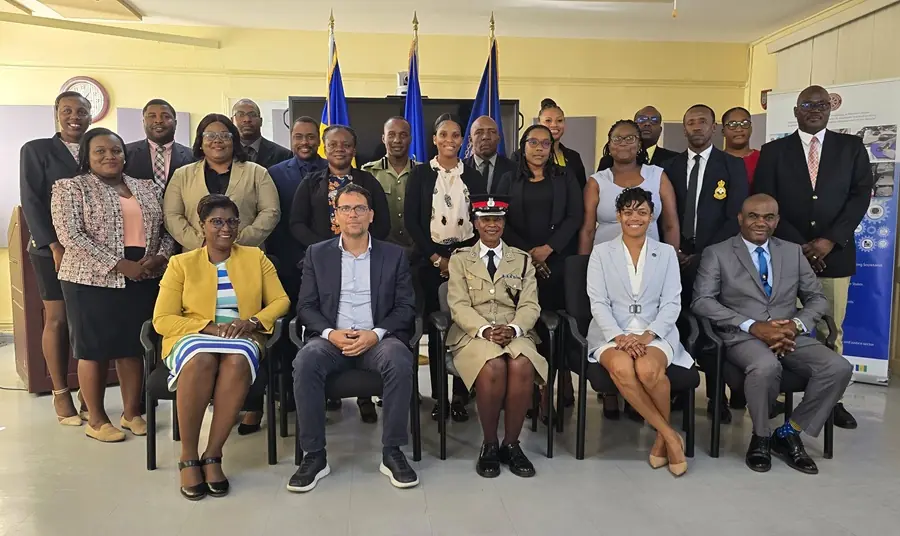STRENGTHENING PUBLIC TRUST – A PRIORITY FOR RSS
Improving the public’s trust and perception of the police is necessary if efforts to improve public safety are to be successful.
This, according to Superintendent of the Barbados Police Service, Christine Standford, can only be achieved if persons within the communities feel like they are being treated fairly and provided with good customer service. She was at the time addressing sixteen Officers from RSS Member States, who recently completed a two-week Community Policing course which was hosted by the Regional Security System (RSS) Training Institute, with support from the 11th European Development Fund Project.
Superintendent Standford pointed out that law enforcement officials currently face a challenge in building relationships with the public which they serve, due to a history of negative interaction with the police or by “depressed intergenerational socio-economic circumstances”.
“You would expect that public trust and support for the police would be at an all-time high when the crime rate is low… but with recorded low crime rates and the best trained officers we ever had, the public’s perception of the police has not improved. Research has shown that people do not care as much about the crime rate as they do about how they are treated by the police.
“If they have not personally felt mistreated by the police, they heard stories from friends who have. Those bad stories stick for a long time. Rebuilding trust in a community where it has been broken or damaged can be done most effectively one interaction at a time,” she stated.
The Police official added that officers should listen to persons as they tell their side of the story, explain what they are going to do and why, explain why action is being taken and allow everyone to maintain their dignity.
“I promise you, if every community officer does these four things in your community relations contact, it will dramatically improve the cooperation in the various communities and overall level of support for the police,” she maintained, noting that police officers at all levels must see Community Engagement as a priority in community policing.
She proffered that to effectively engage the communities, law enforcement officials must embody inclusion, communication, empowerment and feedback into their engagement, affirming that “investing time and resources in community engagement will invariably pay dividends in the future”.
Team Leader, Security Justice and Human Rights, European Union, Alessandro Tedesco stated that his organisation was proud to have supported such an initiative and lauded the Community Police Officers for their work in what he deemed as “a crucial job”.
“There are a number of things you can detect in neighbourhoods, which would otherwise go unnoticed;, signs on streets, words and lyrics of songs, things to which we may not pay attention, but for a Community Policing Officer, this could be an interesting way of obtaining information on relevant matters,” Mr. Tedesco pointed out.
Meanwhile, Director of Strategic Services and International Affairs, Rhea Reid-Bowen, indicated that the RSS had acknowledged the challenges with which police were faced as they attempted to implement a more citizen-oriented approach to its policing service to the public. The course, therefore, was one of RSS’ efforts to support the professionalisation of the Police Forces across its Member States, while embracing a more inclusive and participatory approach to crime solving.
Mrs. Reid-Bowen asserted: “It is this sustained effort towards trust building with the public that will enable community policing philosophies to thrive as there is a willingness by citizens to cooperate with law enforcement institutions to address the issues of crime, and there exists a yearning for citizen-security oriented approaches to crime control and security.




